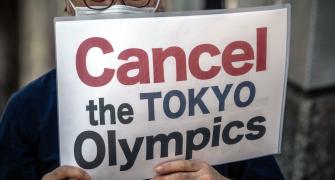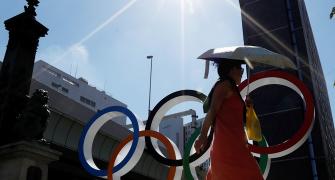'The IOC is actively working with its Japanese partners in the Tokyo 2020 Organising Committee and with the National Olympic Committees on the details of this policy (of flying in additional medical personnel)'
The International Olympic Committee (IOC) is still ironing out details of a policy by which national teams fly in additional medical staff for the Tokyo Olympics so as not to burden Japan which is struggling to cope with the coronavirus pandemic.
The IOC's coordination commission chief John Coates said last week additional medical personnel would be part of the foreign Olympic delegations to support the medical operations and the implementation of COVID-19 countermeasures at the Games.
He did not say how many additional medical professionals would be flown in for the Olympics or how many each team would need to bring.
"The IOC is actively working with its Japanese partners in the Tokyo 2020 Organising Committee and with the National Olympic Committees on the details of this policy (of flying in additional medical personnel)," the IOC told Reuters on Tuesday.
It said the policy would "be a further measure to ensure safe and secure Olympic Games Tokyo 2020". It did not say when it would be finalised or how many additional staff were needed.
Olympic organisers have said the Games, postponed from last year, will go ahead by adopting strict safety measures, including ensuring athletes do not mix with the Japanese public, but there is growing opposition to the Olympics which start on July 23.
Several opinion polls in Japan have shown the majority of the public is opposed to holding the Olympics during a pandemic.
A growing number of investors in Japanese stocks also now believe that cancelling the Games is better for the market, intensifying the pressure on Prime Minister Yoshihide Suga.
Japan has recorded about 719,000 novel coronavirus cases. The numbers are low compared with other countries but much of the country remains under emergency curbs due to a strained medical system and Japan's vaccination drive has been slow, with only 5% of the population inoculated.











